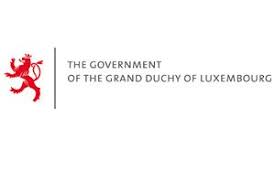(India, Nepal, and Sri Lanka)
Climate change is the biggest concern and challenge of this century, imposing significant effects on livelihoods and sustainable development. Among the global health and economic crises, “the climate crisis continues to grow”.[1] The IPCC (2021) report further warns of increasingly frequent extreme events such as heatwaves, droughts, and flooding. Despite significant headway on many fronts in COP26, the reality falls far behind, and this calls for more action and commitment to adapting to and mitigating the impacts of climate change. South Asia, home to nearly a quarter of the world’s population, is one of the most vulnerable regions to climate change. Extreme weather and climate-related disasters, including avalanches, erratic rainfall, droughts, cyclones, floods, and landslides, have become increasingly frequent in South Asia in recent years. In this research, we contribute to understanding the complexities of the institutional and public investment priorities for addressing climate change in South Asia.
Key recommendations of the report
The findings of our paper Integrating Climate Change and Livelihood within Public Investment Policies: A Cross-Country Assessment in South Asia (India, Nepal, and Sri Lanka) show that all three countries (i.e., India, Nepal, and Sri Lanka) have set clear climate change policies and priorities at the national government level. However, the gap between the national-level climate change policies and the level of implementation at local levels appears to be widening. Also, the voices of local communities and vulnerable groups are largely unheard in the process of developing policies and setting priorities. Governments are urged to consider “climate-smart spending” as a policy area and set up mechanisms to ensure that centrally allocated climate change budgets reach the grassroots level. Since most of the population in these three countries depends on agriculture for survival, sustainable agriculture should also be prioritized for future public investments. Regarding access to climate finance, there is potential in the region to tap into private sector investment for climate change-related areas. However, appropriate measures should be put in place to scrutinize the reporting, performance evaluation, and monitoring of climate change-related budgets and investments. Public investments in climate change should also prioritize promoting education and knowledge creation. Integrating climate change in the higher education curriculum would empower the next generation necessary knowledge and confidence to deal with climate change.
A brief description of the research team
Dr. Bedanand Upadhaya is a Senior Lecturer in Accounting at Essex Business School, University of Essex. His ongoing research focuses on two very important areas affecting people’s lives and livelihoods: COVID-19 and climate change. He has published research papers in leading international journals.
Dr. Chaminda Wijethilake is a Senior Lecturer in Accounting at Essex Business School, University of Essex. Chaminda is a Chartered Member of the Chartered Institute of Logistics and Transport (CILT) in the UK. He has published research papers in the areas of management control systems, sustainability strategy, and operations management in the leading high-ranked journals.
Professor Pawan Adhikari is a Professor of Accounting at Essex Business School. His expertise lies within public sector accounting and his impact research has highlighted the issues that emerging economies face while improving their public sector accounting/accountability practices and is widely used in policy making.
Professor Kelum Jayasinghe is a Chair in Accounting and the Director of Employability Development at Essex Business School; and Director of Centre for Environment and Society (CES) at University of Essex. Kelum is globally known as a critical researcher in accounting and development policy. His international profile is evidenced by his extensive publication record in reputed journals.
Professor Thankom Arun is a Professor of Global Development and Accountability at the Essex Business School. He is a Fellow of the Academy of Social Sciences and the Royal Society of Arts, Manufactures and Commerce. Thankom's research is to understand the global challenges, particularly in developing/emerging country contexts, through an interdisciplinary approach. His recent research interests are in the areas of Fintech, financial inclusion, climate change and sustainability.
For questions and additional information contact PEFA Secretariat at: services@pefa.org
[1]https://oxfamilibrary.openrepository.com/bitstream/handle/10546/621052/…





